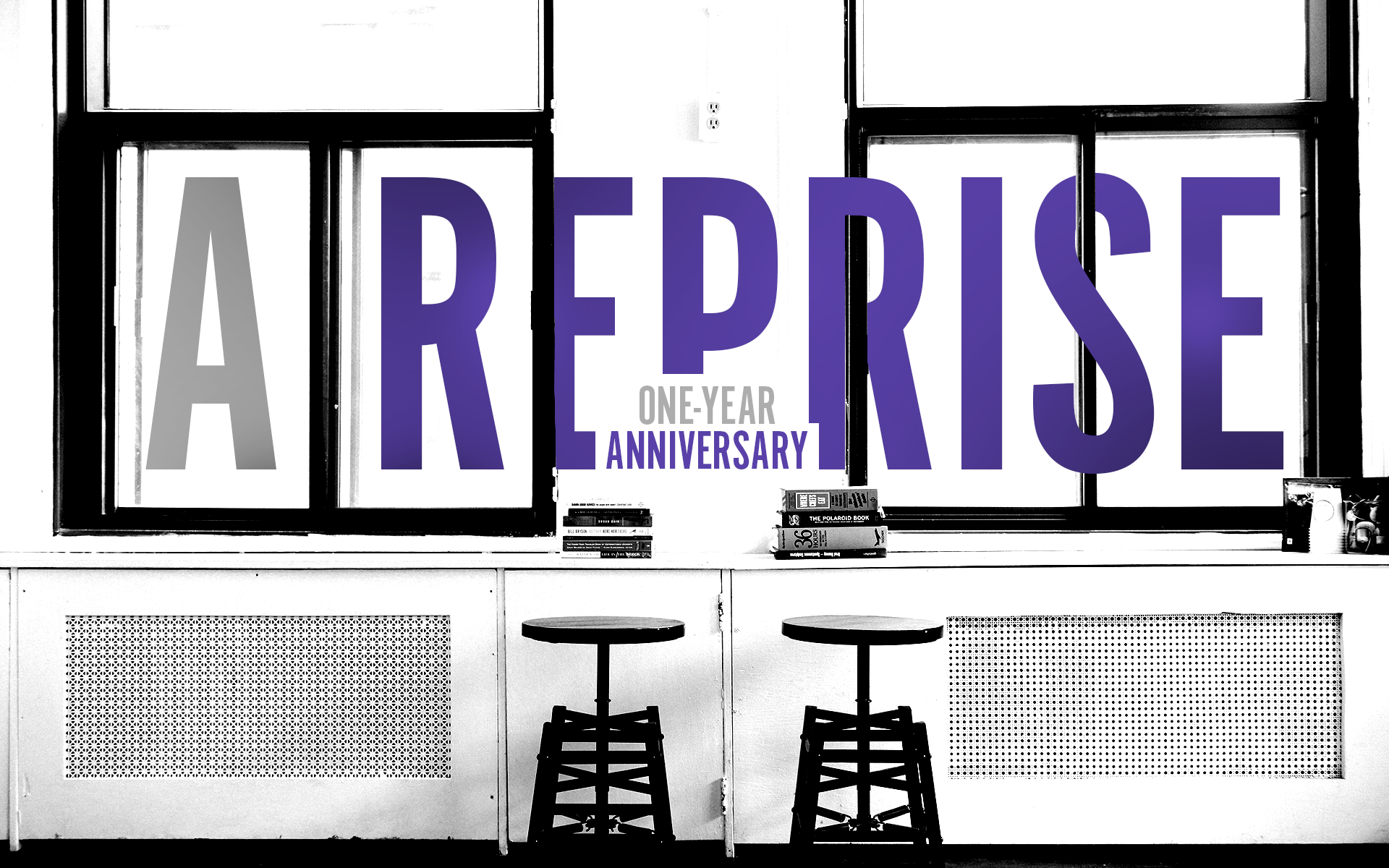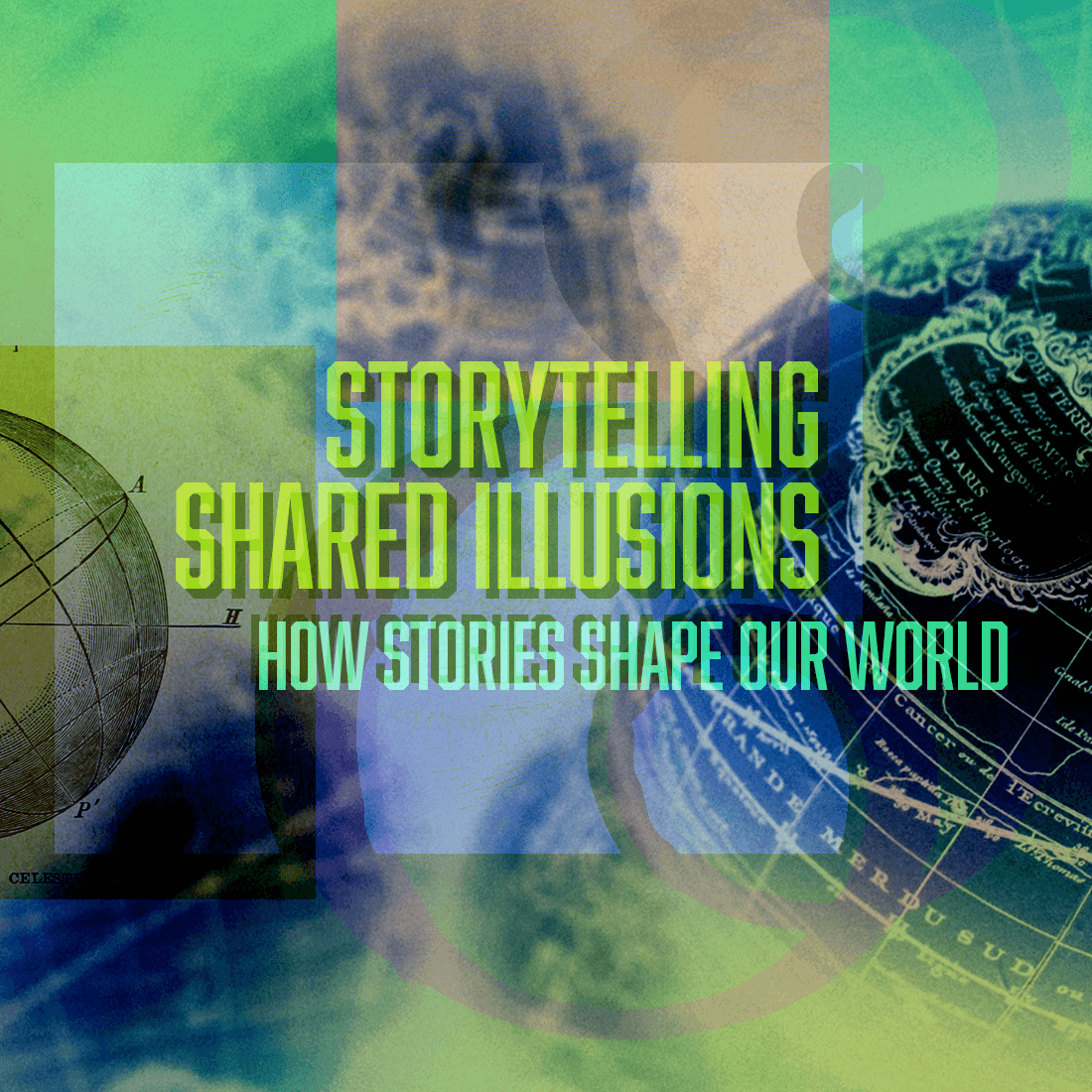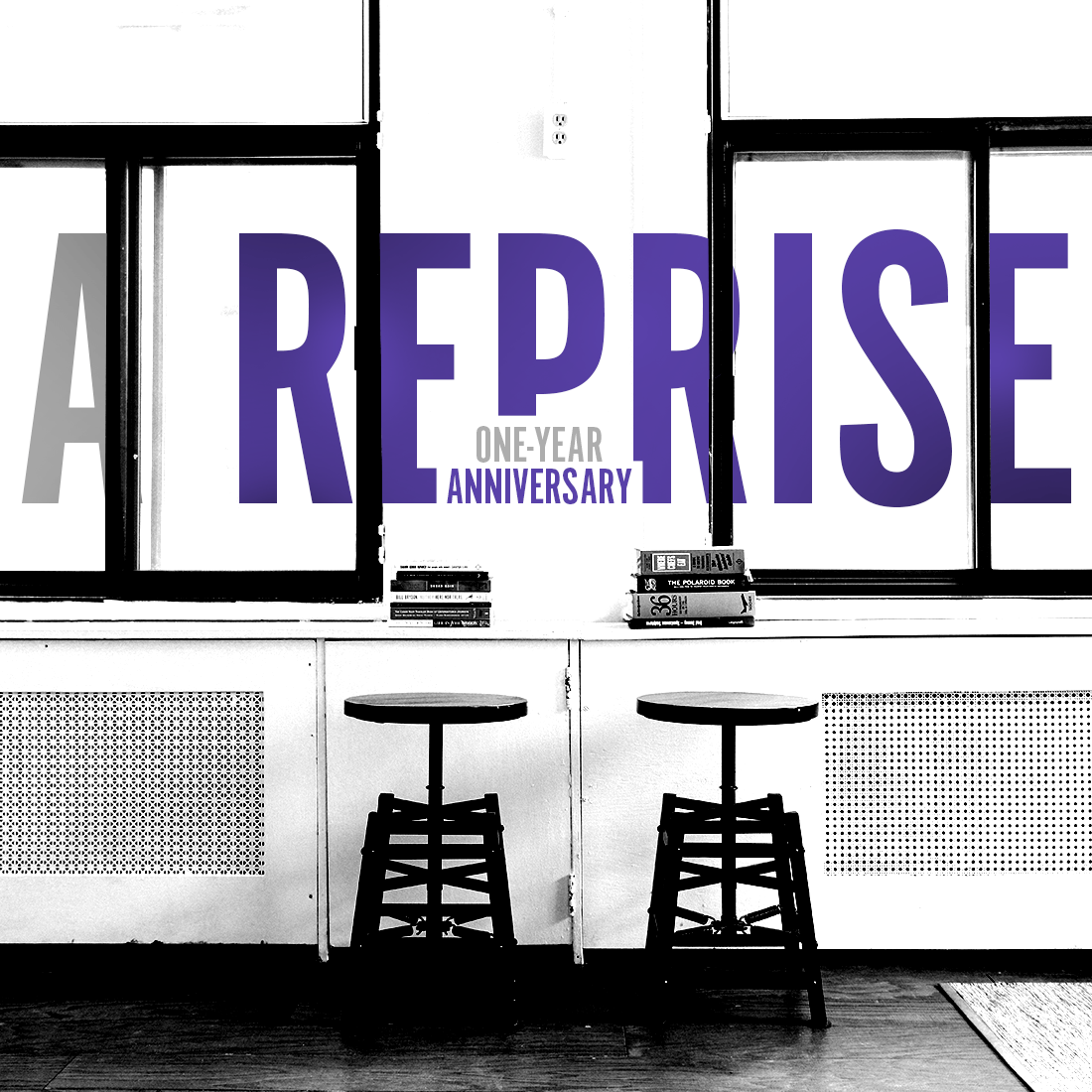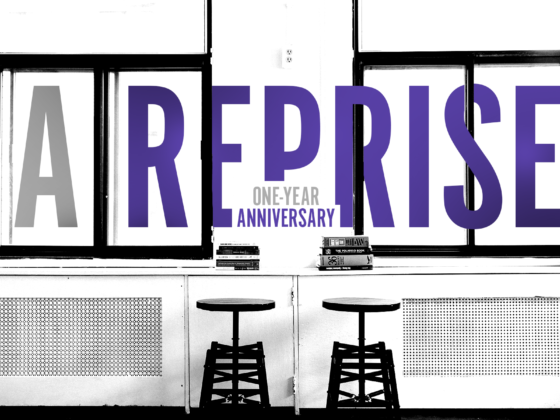NATALIE GALLAGHER & KELLEY KIDD

In this issue we spoke to Natsu Onoda Power, a renowned theatre professor, director, and designer whose extensive body of work — which includes several remounts — inspired us to ask her about her process of creating (and re-creating) original theatrical work. Her most recent remounts include The T Party and Astro Boy and the God of Comics.
Hi Natsu, thanks for making the time to do this interview!
To start with, how would you describe yourself as a theater artist as well as an educator? What are some of the styles and topics you explore — and, perhaps, come back to frequently — in your work?
Natsu Onoda Power
In terms of topic, I look most frequently into adaptation of non-dramatic, often non-fiction, literature. Things that don’t even seem like they lend themselves to a theatrical performance — Madness and Performance (Michel Foucault), The Omnivore’s Dilemma (Michael Pollan) and On the Origin of Species (Charles Darwin) are good examples. I value the primary material; I like the style of adaptation that preserves as much of the nuances and textures of the original text. This has greatly to do with my undergraduate education. I feel slightly guilty (or cheap) every time I change a word or tense in the text! I approach my courses the same way. My advanced seminars usually combine unexpected material and use theatre and performance studies as a tool to get to know something a little more unfamiliar, like mental illness or food culture. Or vice versa… using restaurant dynamics to understand the idea of role-playing, for instance.
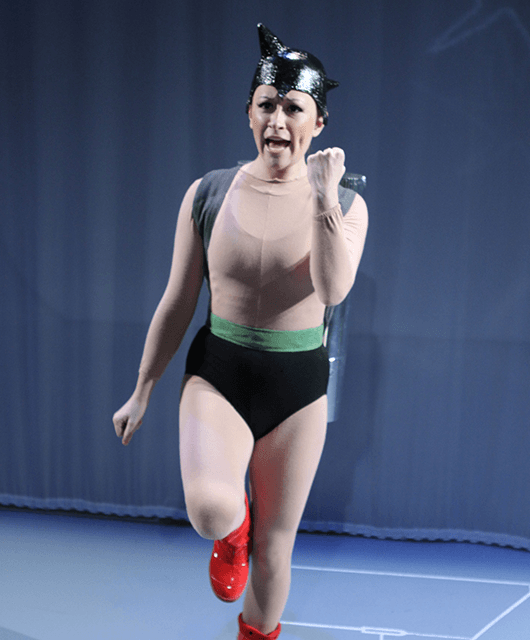
Karen O’Connell as Astro Boy in Studio Theatre’s production of Astro Boy and the God Of Comics | Source: © Carol Pratt/Studio Theatre
Stylistically, I value humor and visual wit. I have developed a vocabulary of performance that is inspired by comics and graphic novels, which I have been coming back to — partly because I feel like I haven’t exhausted the possibility of these techniques. I keep finding new ways of using them!
All that being said, the most important thing that I “come back to” most frequently is the process — I enjoy the process of building shows with a close-knit ensemble. Most of my projects are just excuses for me to be in the room of inspired, talented group of people and learning from them.
Can you tell us a little bit about The T Party and Astro Boy and the God of Comics, two shows you’ve recently remounted?
Natsu Onoda Power
I’ve only officially remounted Astro Boy and The T Party. AND they were both not “remounts” in a strict sense.
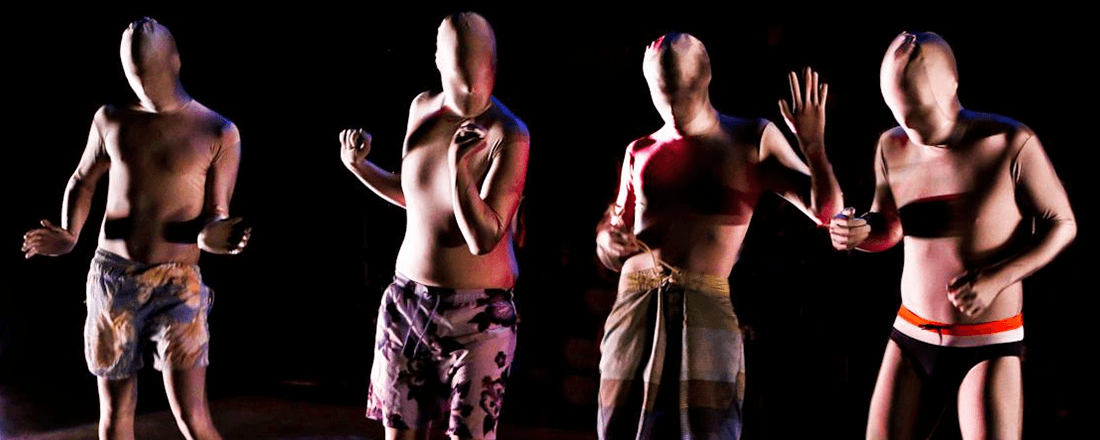
Forum Theatre’s production of The T Party | Source: © Forum Theatre
The T Party was originally developed in 2008 with my Gender and Performance seminar, based on “real people living in D.C. who are transforming, transgressing, and transcending gender as we know it.” It has an episodic structure and each scene has a very different style. The people who have contributed stories, or people whose lives actively intersected with the stories, were often present at rehearsals, particularly for the first three productions in D.C. (the last production in Boston had community participants from Boston area, but not the original D.C. people who contributed stories). I have revised the play for each production (2008, 2013, 2014 and 2016) to incorporate the events that have taken place in the lives of people whose stories we are telling, and to reflect the changes that were happening in the larger world.
Astro Boy and the God of Comics is a play about Astro Boy, a Japanese robot superhero from the 1950s comic book series Tetsuwan Atom by Osamu Tezuka. The play weaves the fictional narrative of Astro Boy, the story of the making of Astro Boy, and the biography of Tezuka in reverse chronological order: it starts with the death of Astro Boy and ends with the birth of Tezuka. My goal was to actively incorporate the vocabulary of comics into live performance: the play/ production features several scenes of “live action cartooning,” in which performers draw on large sheets of paper on stage with markers and charcoal; it also uses animation and interactive projection.
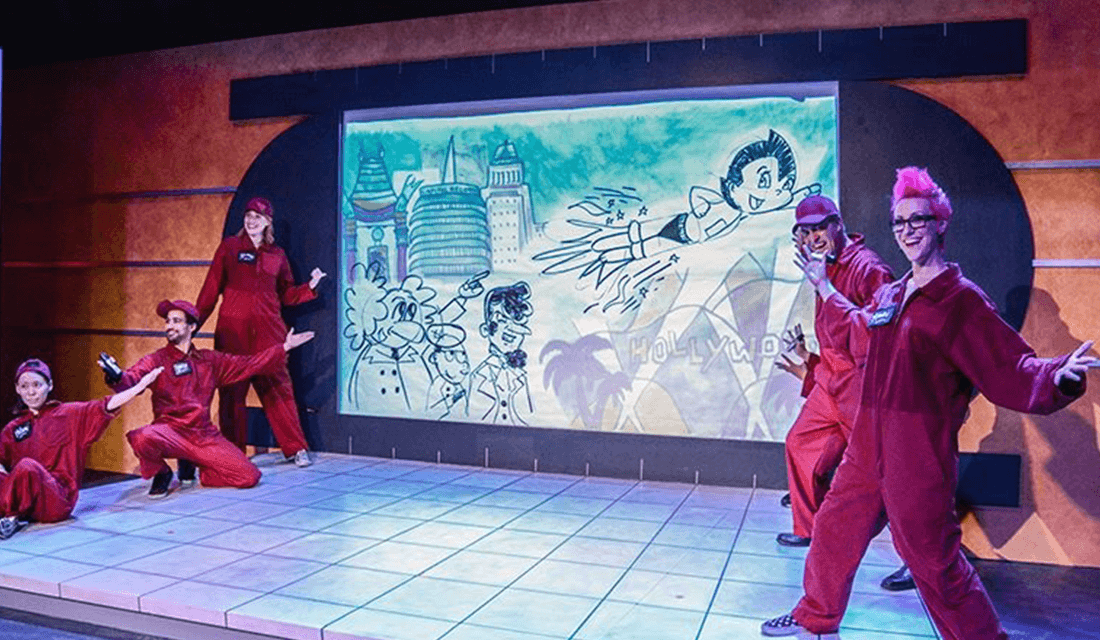
Sacred Fool Theater’s production of Astro Boy and the God of Comics | Source: © Jessica Sherman/American Theatre
Astro Boy has undergone several rounds of remounts/reworks. Each production — though it was a “finished product” (i.e. not a “workshop”) at the time — fed into the next, and each instance of the show was very different. I first produced a very early version of it in 2001, when I was a graduate student at Northwestern, with an undergraduate cast. This was when I invented the “live action drawing” as a performance technique — the spectacle of people drawing on large sheets of paper throughout the show, and the drawing interacting with projection. The show was called SCIENCE (FICTION) and it was more about the history of science and science fiction, in reverse chronological order. Astro Boy was a major figure but not in the center — more of a storyteller than the protagonist. It also dealt with World War II in a… prominent way — at the time, I was obsessively reading about medical experiments with human subjects that took place during World War II, particularly a very disturbing confession by a Japanese surgeon who experimented extensively on Chinese subjects. In the 1990s, there were Japanese right-wing politicians that claimed that the confession was a “fiction,” which partly inspired the title. Also, American scientists talking about the bombing of Hiroshima as a “science experiment.” I never thought I would remount or rework this production.
My favorite remount adventure had to be the reprise of this production at Gu-Ling Street Avant-Garde Theater in Taipei the same year. A friend of mine was running the festival, and they lost an entry… so they contacted me out of the blue and asked if I had a show I could bring. They could only bring 4 people. I said yes. We decided that the video designer, the sound designer, the cartoonist, and myself would travel; AND we will all perform all the roles in the production. To accommodate this situation, we reconfigured the tracks and made the piece suitable for a Chinese-speaking audience — subtitles; physical placards that actors would flip; voiceovers; and yes, we also learned lines in Chinese! It was one of the most fun adventures I’ve had in my life, trying to navigate through an unknown culture and language, doing EVERYTHING ourselves. I still fondly remember going to a “B&Q” (Taiwanese Home Depot) and trying to decipher the standard dimensions of sheet lumber, or riding on the back of a scooter driven by one of the festival staff, going to a night market.
The most enlightening thing about this trip was being in a completely different cultural context. There was a little hardware store I would go to to buy screws and what not during our tech week there — and one day I walked in and there was this group of old people, and everyone was speaking Japanese. I greeted them (in Japanese) and their faces lit up, and they started talking to me. They told me they were ethnically Chinese but considered themselves Japanese because they received Japanese education during World War II (Taiwan was colonized by Japan then). Shockingly, they said something to the effect of “That was a great time.” I almost blurted out something like “DON’T YOU KNOW YOU ARE JUST VICTIMS OF COLONIZATION??? I AM JAPANESE AND I AM DOING A SHOW THAT CRITIQUES JAPANESE COLONIZATION IN WORLD WAR II IN A THEATER JUST ACROSS THE STREET?!?!? I WASN’T EVEN ALIVE, MY PARENTS WEREN’T EVEN ALIVE, BUT I STILL KNOW THAT IT WAS WRONG?!?!?!”
But I didn’t. It was a complete defeat, in a way… I was so naive to think it made any difference. I can say something like “the violence and after-effects of colonization runs so deep,” but it’s not even that. Maybe more like “art makes so little difference.” Or maybe like “I am powerless in every way.” Prior to being there, I flipped the order of the scenes in the script, so that the atomic bomb scene comes before the Japanese surgeon scene; I thought it would make the Japanese surgeon scene the ultimate. It was my way of being culturally aware/sensitive. But that meant NOTHING in the face of the old people at the “occupation hardware store” (as we later nicknamed the store).
Later at an audience Q&A, someone said, “How can you put on a show like this… about Astro Boy… Japan thinks it’s a superhero, so they invent a superhero like Astro Boy. How arrogant of them!”
The “reprise” of the same show has very different resonance and meanings in different cultural and historical contexts; this makes remounts and reprises very challenging and also fascinating. Sometimes the great agendas, messages, and artistic visions are not even relevant against such differences. I have had better luck just surrendering and responding from an honest, genuine, vulnerable place, and seeing what happens, rather than trying to control reception.
When you decide to mount a production for a second time, how different do you think that is from having the same script done by different directors? What are the benefits or pitfalls of having the same creative leadership on the project?
Natsu Onoda Power
I haven’t seen productions of my scripts that are directed by people other than myself (though there have been a couple, out of town). I think the true pitfall is worrying about whether the “original” director would like/approve it or not — though, if it were me, I would worry about it day and night. I think there can be multiple “equally successful” productions of a play that are all very different. That goes without saying, I know, when it is a more traditional play” — I do think the same rule applies when it’s a devised or writer-director piece, which we often forget.
In my recent production of The White Snake at Center Stage, I worried ALL THE TIME about whether Mary Zimmerman, the original director, would like/approve of EVERY CHOICE. Well, that was all because she has been my mentor and best friend (of 20 years). At opening night she was entirely generous and encouraging, calling it “our” show and complimenting on different choices I had made (I had never seen her production). She is so enlightened… and so generous and great. That’s how I aspire to be.
Do you have any current projects you’d like to mention?
Natsu Onoda Power
Current (VERY current!) project: as we speak, Shorty Corleone and I are recording a studio soundtrack to Wind Me Up Maria! A Go-Go Musical, which we produced this fall at Georgetown University. Our dream is to bring this show (a reworked version) to a larger audience in D.C. and to continue to integrate theater and go-go in D.C. in other forms.
Thank you so much for your time Natsu, and best of luck with your project!
Natsu Onoda Power
She is is a writer/director/ designer. Plays she has written and directed include Wind Me Up, Maria!: A Go-go Musical, The T Party, Astro Boy and the God of Comics, A Trip to the Moon, Performance of Sleep in One Long Act Without Intermission, and are you my negative space?. Directing credits include The Studio Theatre, Baltimore Centerstage, Mosaic Theater, Theatre J, and Adventure Theatre. Her set design has been seen at Company One, Imagination Stage, Forum Theatre, Synetic Theatre, and The Hub Theatre, among others. She is an Associate Professor of Theatre and Performance Studies at Georgetown University, where she has adapted/directed numerous productions including War with the Newts, On the Origin of Species, The Omnivore’s Dilemma, and Madness and Civilization. Natsu holds a Ph.D. in Performance Studies from Northwestern University, and is the author of God of Comics: Osamu Tezuka and The Creation of Post World War II Manga (The University Press of Mississippi, 2009).

